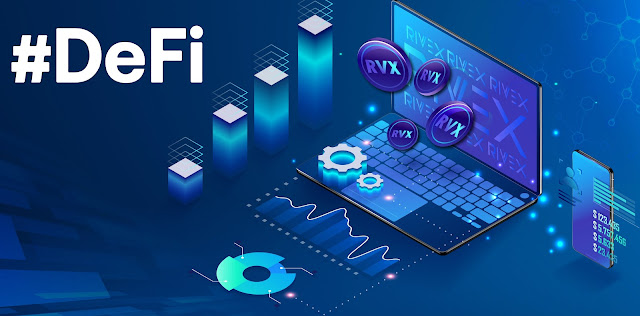The Rise of Decentralized Finance: Opportunities and Challenges
Decentralized finance (DeFi) refers to a new financial system built on blockchain technology that operates without intermediaries. The aim of DeFi is to provide financial services that are accessible, transparent, and secure to everyone, regardless of their location or financial status. In this article, we'll explore the key features and benefits of DeFi, and how it is transforming the financial industry.
Accessibility: One of the key benefits of DeFi is its accessibility. Unlike traditional finance, DeFi does not require intermediaries such as banks or financial institutions. This means that anyone with access to the internet can use DeFi services, regardless of their location or financial status. This opens up financial services to a much larger population, including those who have been traditionally excluded from the financial system.
Transparency: Another key benefit of DeFi is its transparency. Transactions conducted on the blockchain are recorded in a public ledger, making it possible for anyone to track the flow of funds and verify the authenticity of transactions. This results in a higher level of trust and confidence in DeFi services, compared to traditional financial services that are often opaque and difficult to understand.
Security: The decentralized nature of DeFi also provides a higher level of security. Transactions conducted on the blockchain are verified by a decentralized network of nodes, making it more difficult for fraudsters to manipulate the data. This results in a reduction in the risk of fraud and a higher level of security for users.
Lower fees: Another benefit of DeFi is lower fees. The decentralized nature of DeFi services means that there is no need for intermediaries, which can reduce the cost of providing financial services. This can result in lower fees for users, making DeFi services more affordable and accessible.
Programmable money: DeFi also enables programmable money. This means that DeFi services can be automated and programmed to perform specific actions, such as executing a smart contract or automatically sending funds to a designated recipient. This opens up a world of new possibilities for financial services, enabling the creation of innovative and automated financial products and services.
Increased competition: The decentralized nature of DeFi also encourages increased competition in the financial industry. By removing intermediaries, DeFi services can offer financial services directly to users, reducing the cost and increasing the efficiency of financial services. This results in increased competition and innovation in the financial industry.
The growth of DeFi has been phenomenal in recent years. According to DeFi Pulse, the total value locked in DeFi protocols reached over $65 billion in January 2021, up from just $1 billion in 2019. This growth has been driven by the increasing demand for DeFi services, as well as the development of new and innovative DeFi protocols.
One of the most popular DeFi protocols is decentralized exchanges (DEXs). DEXs allow users to trade cryptocurrencies directly with each other, without the need for intermediaries. This results in lower fees, increased security, and greater control over assets. Other popular DeFi protocols include yield farming, stablecoins, and lending platforms.
Yield farming refers to the practice of providing liquidity to DeFi protocols in exchange for rewards. This can result in high returns for users, as well as providing liquidity to the DeFi ecosystem. Stablecoins are digital assets that are pegged to a stable asset, such as the US dollar, which reduces the volatility of cryptocurrencies. Lending platforms allow users to earn interest on their digital assets, providing a new investment opportunity for users.
Despite its rapid growth, DeFi is still in its early stages, and there are many challenges that need to be addressed. For example, the lack of regulation in the DeFi ecosystem means that there is a higher risk of scams and fraudulent activities. In addition, the lack of consumer protection and the difficulty of recovering lost funds can also deter some users from using DeFi services.
Another challenge faced by DeFi is scalability. As the number of users and transactions grows, it becomes more difficult for DeFi protocols to handle the increased load. This can result in slow transactions and higher fees, which can negatively impact the user experience.
In conclusion, DeFi is transforming the financial industry by providing financial services that are accessible, transparent, and secure to everyone. The growth of DeFi has been phenomenal, with the total value locked in DeFi protocols reaching over $65 billion in January 2021. Despite its rapid growth, DeFi still faces many challenges, including the lack of regulation, the risk of scams, and scalability. However, as DeFi continues to evolve and mature, it has the potential to revolutionize the financial industry and provide financial services to billions of people who have been excluded from the traditional financial system.






Post a Comment